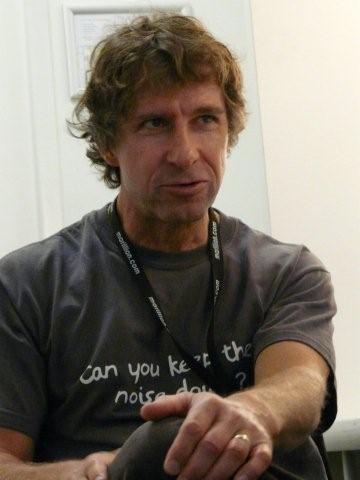

PETE TREWAVAS: “I JUST
ENJOY COLLABORATING”
An interview by Michel Scheijen for Mostlypink.net
Pics
by Raymond Kruyen
He belongs to
the most talented and respected bass-players in rock music. Besides Marillion he plays with Kino, Transatlantic, Iris, and The
Wishing Tree. Before the Marillion-gig in

|
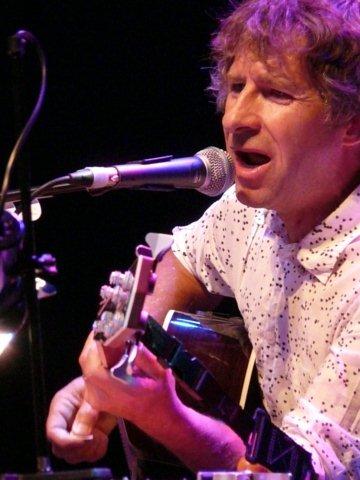
|

|
Michel: How are
you?
Pete: I’m doing
very well, thank you. But I’ve got a bad back! During the performance I’m
sitting on a stool playing the xylophone, and I’m not used to do that every
night. It makes my back ache.
Michel: So you
don’t play the bass on stage?
Pete: Of course
I do. But beside that I play xylophone and acoustic guitar on this tour.
Michel: ‘Less Is
More’ is Marillion’s first full acoustic album and tour. Why did that take so
long?
Pete: In the
past we played incidental a few acoustic shows. The most notable was ‘Unplugged
At The Walls’ which was after the “Radiation’-album.
During the mixing of ‘Radiaton’ in a small town
called Oswestry, a local restaurant owner made us a
deal. He would feed us a week for free, if we played a concert in his
restaurant. At that time we only had acoustic instruments with us, so we
decided to do an acoustic show. We never considered a complete acoustic album
as a serious option for the future, because that’s not what Marillion
is about. We decided to do ‘Less Is More’ because we wanted to take a break
from the album-tour-album-tour cycle. We wanted to do something completely
different.
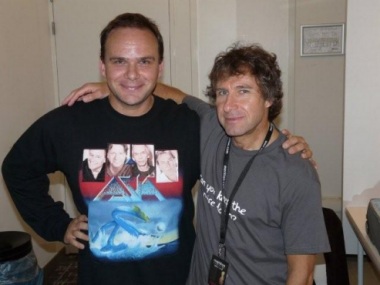
Michel: Is it the
first time that you play strictly acoustic?
Pete: Certainly
not. I played acoustic bass occasionally on shows or at the Marillion-Conventions.
But for me it’s the first time that I only play an acoustic bass during a whole
tour.
Michel: What’s
the most difficult part in writing acoustic arrangements?
Pete: The main
thing to keep the original spirit of a song is try to keep the original idea
alive. Whatever the song is lyrically trying to betray.
Also you have to keep its passion. Certainly for the songs
that we picked out. We stripped a song to its bare bones, and
reconstruct it. Sometimes with complete new music. For
the song ‘Hard As Love’ we only choose two little
musical sections, and recreated them. Because it’s actually a
guitar-riff song. But we forgot completely that riff, and just wrote
some chords that went on with the vocal-melody. Finally we took one of the melodies
from the middle section and made that into the chorus. A whole new piece of
music came out, without losing its original spirit and sentiment. Another
example is the song ‘Gazpacho’. It’s a progressive sounding song with different
time signatures. Typically something you wouldn’t play in an acoustic way. But
we chose for a kind of
‘La Bamba’-vision for that song, and
made it to a Mexican sing-a-long thing.
Michel: Was it
hard to pick-out the correct songs?
Pete: Sure it
was! Each of us made a list with a couple of songs that he thought would work
well. We put all those together, and with producer Mike Hunter we chose twelve
or fourteen songs and recorded them.
Michel: Can you
tell something about Marillion’s special relationship with their fans?
Pete: That’s
quite unique, you know! It’s a two-way thing, because we get so much back from
our fans. It allows us to do what we want. There’s an incredible respect
between us and them. The interaction between us on the website is pretty
instant. We respect the fact that they will put themselves out to help us. It’s
fair to say that Marillion-fans are an intelligent bunch
and very faithfull.
Michel: Quite
remarkable, because Marillion’s sound changed a lot.
Pete: Yes, that
true. But I think that was always going to be the case. Our second album ‘Fugazzi’ was quite different than our first album ‘Script For A Jester’s Tear’. We were always searching for something
new, different, and interesting to keep us alive. When Steve joined the band it
became more and more apparent.
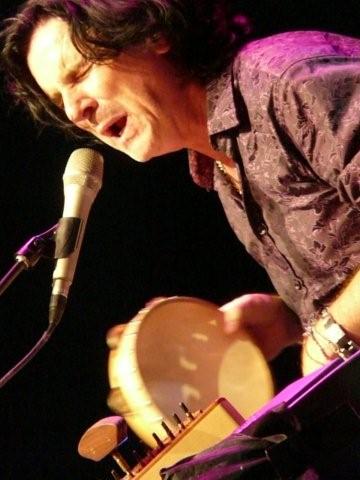
|
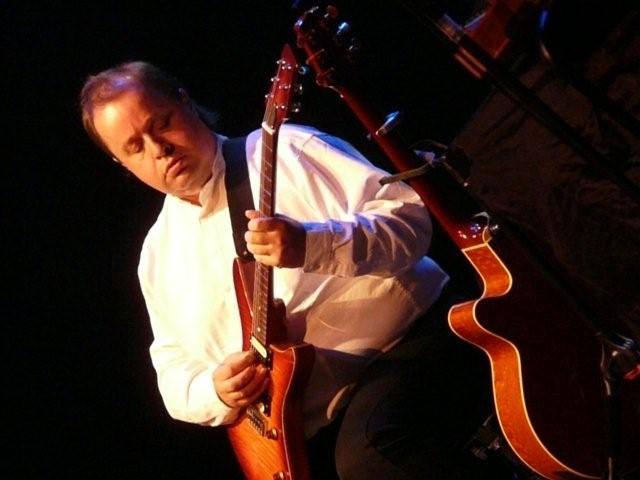
Pictures all by Raymond Kruyen, LimburgTheaters Heerlen 8th October 2009. |
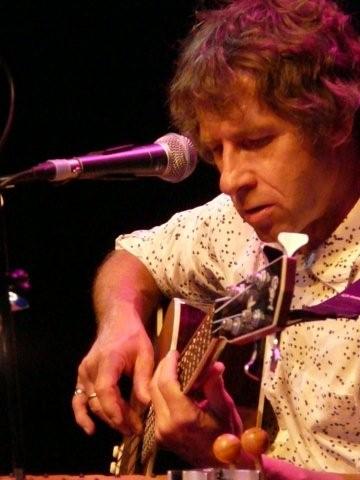
|
Michel: What
will be Marillion’s next challenge after all these years?
Pete: Well,
something will come along. Mark is very good at coming up with wacky ideas. The
next challenge is the same as always: how going forward? Finding
your way in our fast changing world. Again finding
that valid path. Music is everywhere these days. It is so much more
available and used than when I was a kid. In those days the only way to listen
to The Beatles was buying a record or listening to the radio. Nowadays you turn
your mobile-phone on, and there’s a piece of music on it! So making a piece of music
that really means something to people, is a lot harder than it used to be.
Michel: Has Marillion changed their way of recording during the years?
Pete: We are
very traditional in that way. We use as much technology as we feel we want to
use. Pro-Tools is one of those things. Our recordings
are on very high quality. We’ve got our own studio, and basically work there. We
always have the option to take some stuff home, do it on computer, and bring it
in the next day. Technology can be very handy, but also can kill creativity.
Michel: You are
one of todays best and most
respected bass-players. How come that there’s no Pete Trewaves
solo-album?
Pete: Thanks for
your compliment, but to be honest: it’s not my kind of thing. I don’t know what
to do with a solo-album. It would be an album of songs, and not a typical
bass-player album like Chris Squire or Tony Levin do. I write a lot of songs, and they would fit in
a solo-project. I once had the idea of doing a solo album, but then I got
involved with Jon Michell in the Kino-project. After
that I was thinking of going back to working on the solo-album. But then I
started working with Robin Boult [ guitars with Fish ] who’s a good friend of mine. I enjoy much more
collaborating with other people, than working on a solo-project.
Michel: Thanks
for your time and answers, Pete.
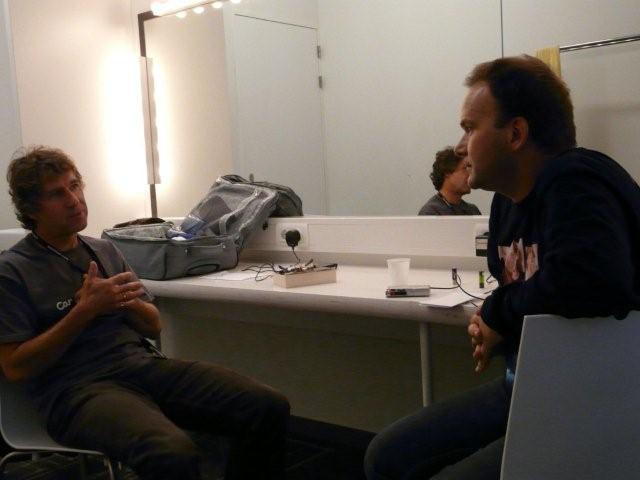
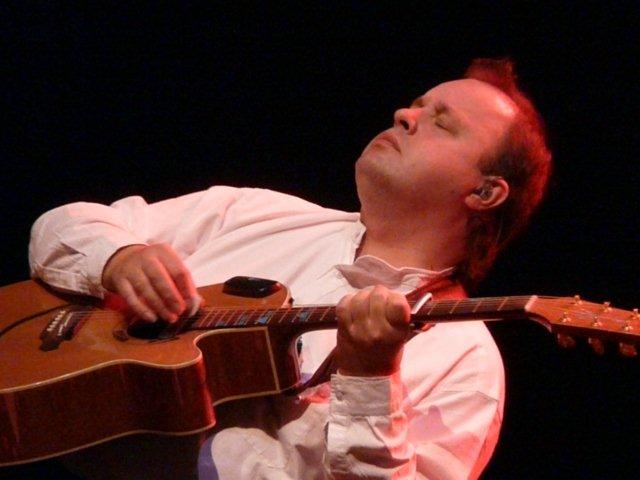
|
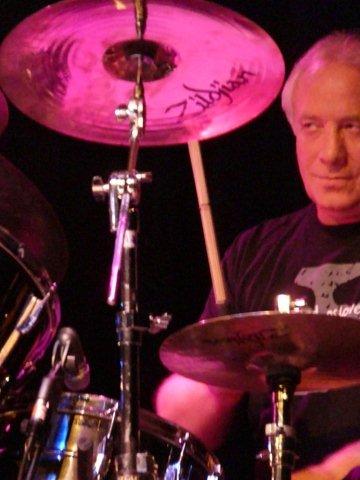
|
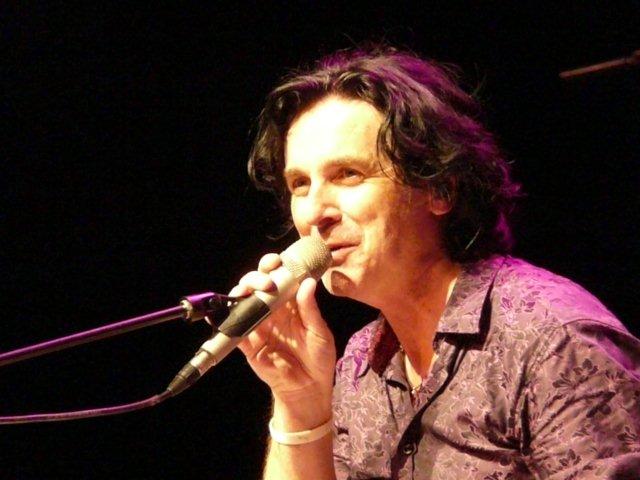
|
 Home again.
Home again.